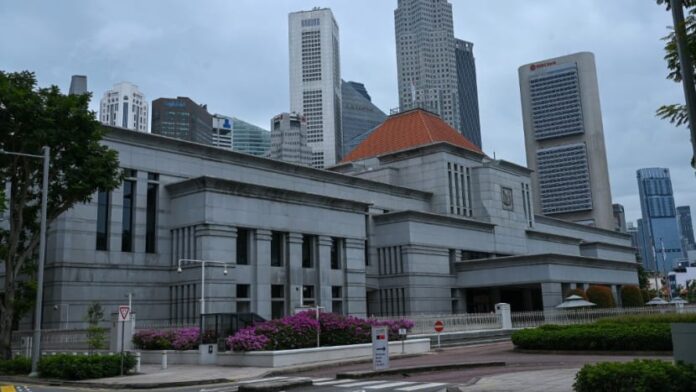SINGAPORE: Parliament on Monday (April 4) passed a bill that makes a series of changes to Singapore’s extradition law, including how to determine whether a crime would make someone liable for extradition.
Edwin Tong, the second minister of the Ministry of Law, said the changes were a “comprehensive update” of the existing law, taking into account developments in international practice, adding that the Extradition Law had remained “basically unchanged” since its introduction in 1968.
“Through these amendments, Singapore will enhance its crime-fighting capabilities through international cooperation,” he added.
What changes?
The law will now take a “threshold approach” to determine whether an offence is extraditable.
Under this approach, extradition is possible if an offence results in a maximum penalty of more than two years in prison, with the exception of certain excluded offences.
This replaces the previous “list approach” in which normally only the offences listed in the first schedule of the Act are extraditable.
“We do not expect this amendment to lead to an unreasonable increase in the number of extradition requests received,” Mr Tong added, noting that in the past, extradition partners have only made requests for “relatively serious crimes”.
There are also now more restrictions on the surrender of requested fugitives, such as where a fugitive has only a short term left – usually considered less than six months.
Another limitation is when fugitives cannot be prosecuted in other jurisdictions, because of the statute of limitations, which means the time frame within which legal action can be brought.
In addition, fugitives will be able to agree to their extradition and waive the extradition process.
“This saves national resources and prevents fugitives from being detained in Singapore for longer than necessary as a full extradition hearing is not required,” Mr Tang said.
Clarification from MPs
Four MPs stood up to speak on the bill, asking for clarifications on technology and procedures, among other things.
Mr Murali Pillai (People’s Action Party – Bukit Batok) stated that magistrates can issue writs for the arrest of fugitives through the authority of the minister or by applying directly to the magistrates.
But he questioned why magistrates should still be given the power to issue the warrant independently.
In response, Mr Tong said the power of provisional arrest was reserved in emergency situations where the fugitive was “considered a flight risk” and the requesting country did not have enough time to prepare a full extradition request.
“This enables Singapore to meet our obligations under the treaty,” Mr Tang said. But he added that after that, a full extradition request must still be properly submitted.
MP Sylvia Lim (WP-Aljunied) also asked if the bill was a signal that the government was “changing its traditional and somewhat cautious approach” to entering extradition treaties.
Noting that extradition regulations from non-Commonwealth countries were approaching those of Commonwealth countries, she asked whether Singapore would be interested in entering into more extradition treaties, including those with non-Commonwealth countries.
Mr Tong responded that the government’s approach had not changed.
“We’ve always wanted to see countries that share a desire to work with us, to strengthen international cooperation in apprehending criminals, and to strengthen bilateral cooperation in the fight against crime.
“If these arrangements are deemed mutually beneficial and useful to us, and we can overcome any issues related to differences in our respective legal systems, then we will be prepared to enter into treaties or arrangements with them.”






